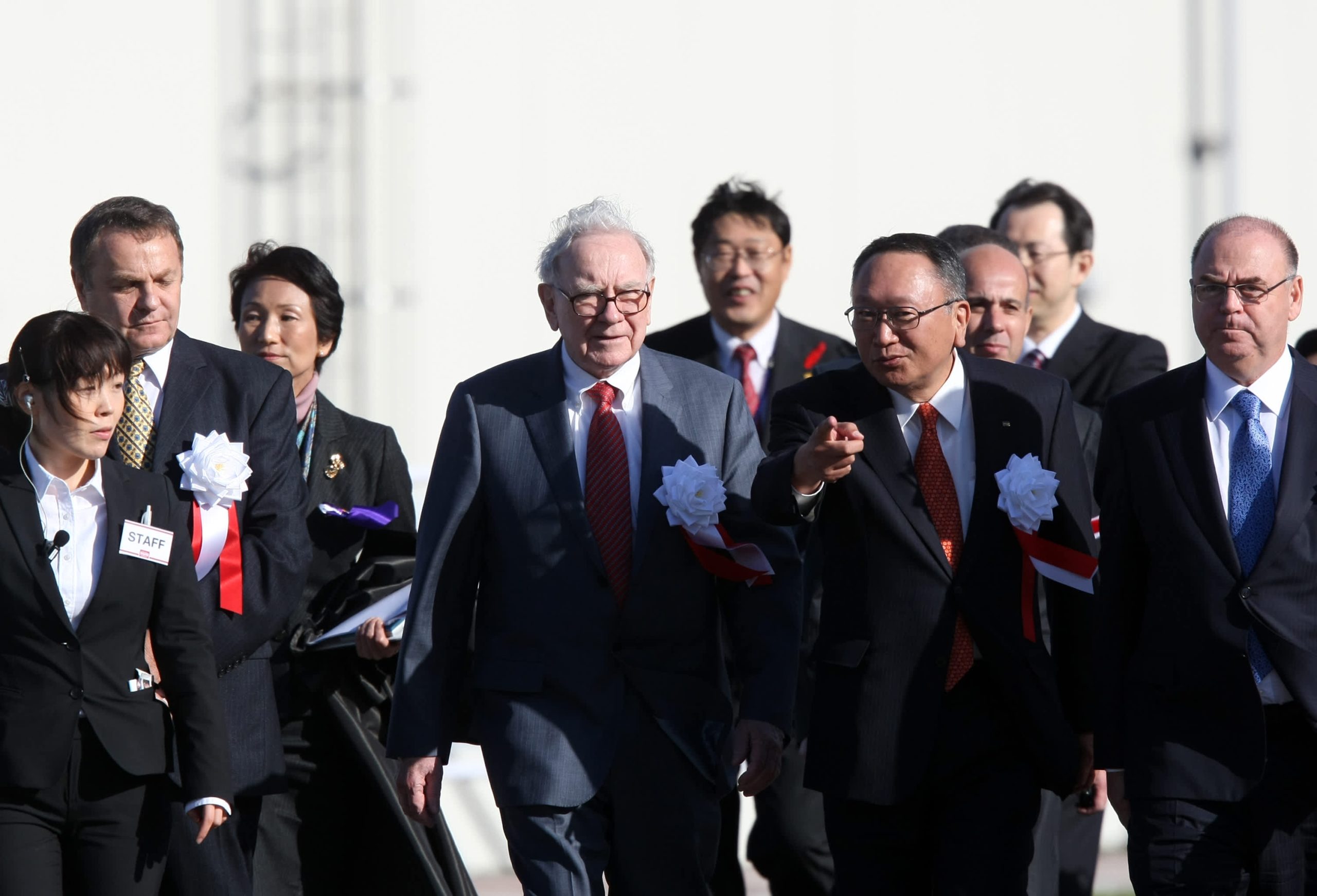Berkshire Hathaway is committed to its Japanese investments for the long term and has reached an agreement with the companies to own beyond the initial 10% ceiling, Warren Buffett said in his annual letter to shareholders released Saturday.
“From the start, we also agreed to keep Berkshire’s holdings below 10% of each company’s shares. But, as we approached this limit, the five companies agreed to moderately relax the ceiling,” Buffett said. “Over time, you will likely see Berkshire’s ownership of all five increase somewhat.”
The Japanese names in Berkshire’s portfolio are Itochu, Marubeni, MitsubishiMitsuiSumitomo
At the end of 2024, the market value of Berkshire’s Japanese holdings came in at $23.5 billion, with the aggregate cost at $13.8 billion. The investor highlighted the companies’ managements, relationships with their investors, as well as their capital deployment strategies.

Buffett has sold Japanese debt to fund Berkshire’s shares in the Japanese companies. Issuing yen-denominated bonds also allows Buffett to reduce foreign exchange-related risks. Berkshire reported $2.3 billion in after-tax gains in its Japanese bonds, of which $850 million were from 2024 alone owing to the strength of the dollar, which appreciated around 11% against the yen in 2024.
“We like the current math of our yen-balanced strategy,” Buffett stated. He added that designated successor “Greg [Abel] and I have no view on future foreign exchange rates and therefore seek a position approximating currency-neutrality.”
The Oracle of Omaha forecasts the annual dividend income from its stake in the five Japanese trading houses will come in at around $812 million.
“I expect that Greg and his eventual successors will be holding this Japanese position for many decades and that Berkshire will find other ways to work productively with the five companies in the future,” said Buffett.
To be sure, the five Japanese trading houses have struggled in the past year. Itochu and Marubeni are down more than 8% each in that time, while Mitsubishi has dropped 26%. Mitsui and Sumitomo have lost 16% and 10%, respectively, over that period.
International: Top News And Analysis
Read the full article <a href="Read More” target=”_blank”>here.


